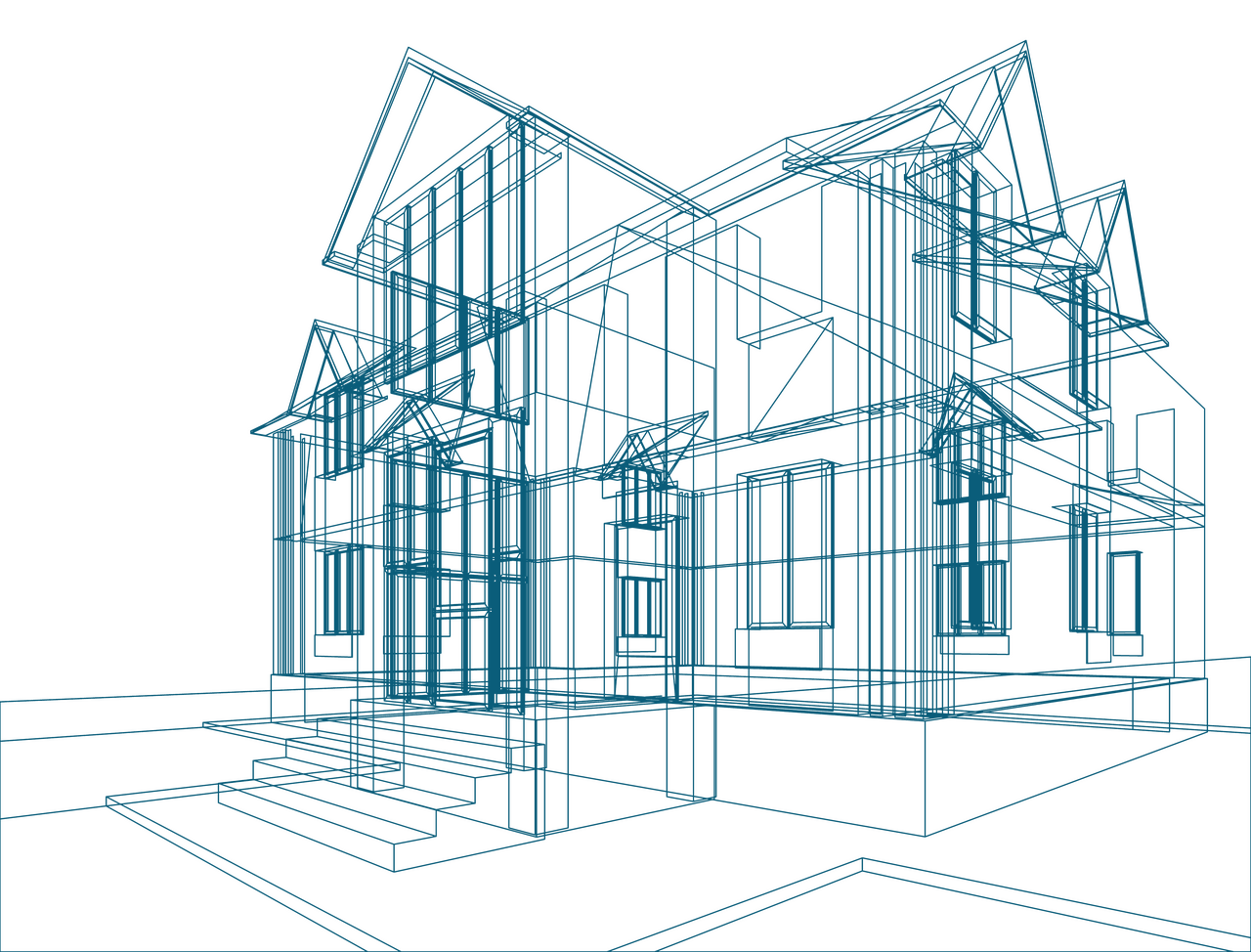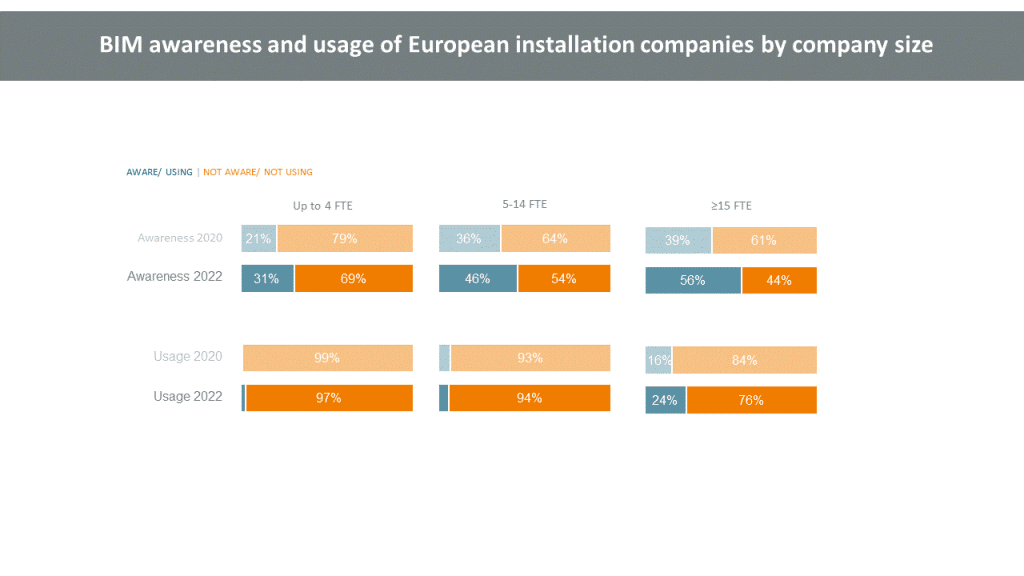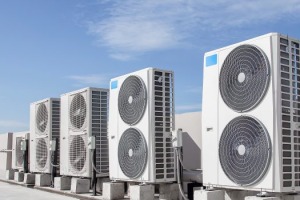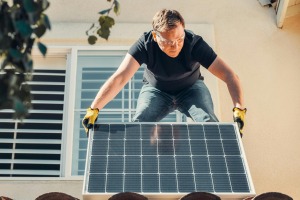


Market report
BIM usage among installers
Gain valuable insights into the European mechanical installation monitor market with the latest market report from USP Research. Stay informed on industry trends and opportunities.
News I published 12 July 2022 I Dirk Hoogenboom
Who are the BIM-using installers?
As part of the overall trend of digitalisation of the construction process, Building Information Modelling (BIM) plays an increasingly important role in the European construction sector. Over the past decade, we have seen BIM usage among architects increase slowly but steadily, and in 2021, 44% of European architects were already using BIM in projects.
Among professionals who are involved in later stages of the building construction process, BIM usage is still rather low. BIM usage among European HVAC installers is still under 10% on average, for instance. As we saw in a previous article, however, BIM usage is expected to grow slowly but steadily among installers as well. In some cases, BIM usage is already much higher, like in the Netherlands where nearly a quarter of installation companies already use BIM.
To get a clearer idea of future BIM adoption, it pays to know more about the installation companies that are already using it. Who are these installers who invested money, effort and time to start using BIM? To find out, we interviewed HVAC installers from six major European markets on their experience with BIM for USP Marketing Consultancy’s European Mechanical Installation Monitor.
Current BIM users are predominantly large installation companies


Looking at the size of installation companies, BIM usage is almost non-existent among the smallest, as only 3% of installation companies with a size of 4FTE or less report to use it. The share of users is larger among medium-sized installation companies, but still only a fraction (6% among installation companies sized 5-14FTE).
The real BIM action is found among the larger installation companies (15FTE or more), of which BIM usage has grown from 16% in 2020 to almost a quarter in 2022. For these larger companies, the investment necessary to acquire BIM software and train or hire a BIM specialist may be more feasible, but there are other reasons why current BIM users are mainly the large installation companies.
BIM users are more involved in new-build and non-residential projects
On average, the BIM-using installation companies are getting 57% of their turnover from new-build projects, whereas installation companies that are not working with BIM are more involved in renovation. Also, BIM-using installers get about half of their turnover from non-residential projects, whereas non-BIM-users get 61% of their turnover from residential projects.
It makes sense that BIM is already used a lot more in large-scale non-residential new-build projects, than in smaller residential and renovation projects. Larger installation companies are more often involved in those large non-residential new-build projects. That means that, aside from having the necessary means to invest, the larger companies have more of an incentive to adopt BIM as well.
Future of BIM usage among HVAC installers
The above also explains why BIM usage is not exploding but only steadily growing. BIM is mainly used for larger non-residential projects, which are done by larger installation companies. The smaller installation companies, for whom starting with BIM is rather expensive and offers less reward in their smaller residential or renovation projects, are a lot more numerous than the larger installers.
That does not mean that more growth of BIM usage among HVAC installers is impossible though. BIM will increasingly be a requirement for projects, and usage among architects and contractors is already substantial and ever growing. Our expectation is that BIM usage will continue to grow among large installation companies, and that the group of medium-sized installation companies (5-14FTE) will slowly be drawn into BIM usage as well. For more information on the role of BIM in the projects of HVAC installers in six major European markets, we refer you to the Q1 report of USP Marketing Consultancy’s European Mechanical Installation Monitor.

Read more


31 July 2024 I Dirk Hoogenboom
How is the smart and connected products market evolving in Europe?



02 July 2024 I Dirk Hoogenboom
BIM adoption among European HVAC installers remains low


06 June 2024 I Maja Markovic
Sustainability in the electrical installation sector; slow but steady growth



10 May 2024 I Dirk Hoogenboom
Sustainability in the electrical installation industry

Fresh Insights Await
Our relevant reports
Delve into the newest findings across various market segments, crafted for a cutting-edge overview. Explore our insightful reports, brimming with up-to-date data, trend analyses, and in-depth examinations, all tailored to provide you with a comprehensive understanding of the current market dynamics.
Construction
Home Improvement
Installation
Special reports
Construction
Smart Materials and Buildings Q4 2024
2024 85 pages
Explore the evolving future in construction sector among European architects in Q4 2024. Delve into the factors driving material preferences and the impact on construction aesthetics and sustainability.
2,000 Euro
Construction
Digitalisation and BIM H2 2024
2025 64 pages
Uncover the preferred purchase channels of contractors in H2 2024, and understand how purchasing behaviors evolved. This report provides insights into the factors influencing purchasing decisions among contractors.
6,000 Euro
Construction
Decision making process Q3 2024
2024 87 pages
Unveil the decision-making processes in the construction industry through the lens of European architects. Discover the factors that influence crucial decisions and the interplay among different stakeholders.
2,000 Euro
Construction
Prefab H1 2024
2024 63 pages
Discover the adoption rate and benefits of prefabrication technology among European contractors in H1 2024. Understand the driving forces behind prefab usage and its impact on project efficiency and cost-saving.
6,000 Euro
Construction
Future of construction Q2 2024
2024 82 pages
Explore the evolving future in construction sector among European architects in Q2 2024. Delve into the factors driving material preferences and the impact on construction aesthetics and sustainability.
2,000 Euro
Construction
Sustainability 2024
2024 72 pages
Painter Insight Monitor 2024 will focus on understanding the specific needs, preferences, and challenges faced by painters when it comes to sustainable products.
11,000 Euro
Home Improvement
DIY vs DIFM Q4 2024
2025 76 pages
Explore the prevailing trends between DIY and DIFM in Q4 2024. Understand consumer preferences and the factors influencing their choice between DIY and DIFM.
3,500 Euros
Home Improvement
Branding Q3 2024
2024 74 pages
Discover the power of branding in the home improvement sector. Explore how strong branding influences consumer preferences and purchase decisions.
3,500 Euro
Home Improvement
European Garden Monitor
2023 43 pages
Explore the European Garden Monitor, a comprehensive platform dedicated to garden health monitoring in Europe. Access valuable resources and expert advice today.
12,000 Euro
Home Improvement
Purchase channels Q2 2024
2024 90 pages
The European Home Improvement Monitor offers valuable insights on purchase channels in the European home improvement industry, examining the evolving preferences and behaviors of consumers across traditional retail and emerging online platforms.
3,500 Euro
Home Improvement
Sustainability Q1 2024
2024 81 pages
Delve into sustainability trends in the home improvement sector in Q1 2024. Discover consumer preferences and the shift towards eco-friendly home improvement solutions.
3,500 Euro
Home Improvement
DIY versus DIFM Q4 2021
2024 113 pages
This report is a must-have if you’re in the home improvement industry. It provides a wealth of information on the behaviour of DIY and DIFM consumers, their motivations, and the factors that influence their purchasing decisions.
3,150 Euro
Installation
Training needs Q1 2025
2025 100 pages
This report offers an overview of installers’ habits and preferences concerning their education. Furthermore, the report encompasses the pervasive challenge of workforce shortage and explores the sector’s strategies for resolving this issue.
3,250 Euro
Installation
Media orientation Q4 2024
2025 128 pages
The European Mechanical Installation Monitor report provides a detailed analysis of the plumbing and HVAC industry. This report specifically focuses on Media Orientation in the industry.
2,800 Euro
Installation
Services in the installation sector Q4 2024
2025 102 pages
This report provides a comprehensive view of the installer's requirements for services from manufacturers. Within the report, you will find information on the most needed services in each category: commercial processes, engineering, products & installation, and repair & maintenance. It also examines the services that installers offer to their customers.
3,250 Euro
Installation
Prefab Q3 2024
2024 110 pages
Uncover the adoption of prefabricated products in HVAC installations during Q2 2022. Delve into the benefits and challenges associated with prefabrication in HVAC.
2,800 Euro
Installation
Prefab Q3 2024
2024 119 pages
This report offers a comprehensive view of the installers’ involvement and needs regarding prefabricated electrical installations.
3,250 Euro
Installation
Smart & Connected Products Q2 2024
2024 120 pages
This report provides a comprehensive view of the attitudes of installers toward smart building solutions, specifically among electrical installers and their clients. In the report, you will find insights into the installers' experiences with installing smart products and the willingness of end users to invest in such solutions, as well as their motivations and pain points.
3,250 Euro
Special reports
European Sustainability Report 2024
2025 51 pages
This report provides in-depth insights based on triangulation of key market information and data as well as data from USP Marketing Consultancy’s key monitors that are carried out year in, year out. The focus of this report is on the most important stakeholders within the construction industry, namely architects, contractors, electrical and HVAC installers within The United Kingdom, The Netherlands, Belgium, Germany, Poland, France, Italy, and Spain.
3,950 Euro
Special reports
European Sustainability Report 2024
2024 51 pages
This report provides in-depth insights based on triangulation of key market information and data as well as data from USP Marketing Consultancy’s key monitors that are carried out year in, year out. The focus of this report is on the most important stakeholders within the construction industry, namely architects, contractors, electrical and HVAC installers within The United Kingdom, The Netherlands, Belgium, Germany, Poland, France, Italy, and Spain.
3,950 Euro









